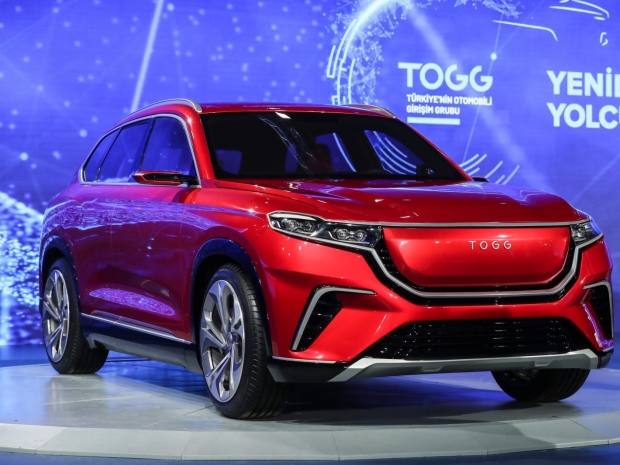Like all autocrats, the project has been a long-time goal of President Tayyip Erdogan and his ruling AK Party as a demonstration of the country's growing economic power. Turkey has tried to build a fully home-produced car for decades but always proved to be the "sick man of the car industry".
Speaking at the unveiling ceremony, Erdogan said Turkey aimed not only to sell the car domestically but wanted it to become a global brand, starting with Europe.
Erdogan said the charging infrastructure for electric cars would be ready nationwide by 2022. The new project, launched in October, will receive state support such as tax breaks, and establish a production facility in the automotive hub of Bursa in northwest Turkey, according to a presidential decision in the country's Official Gazette.
Five models of the car will be produced, the statement said, adding the government had guaranteed to buy 30,000 of the vehicles by 2035.
Erdogan said: "We're all together witnessing Turkey's 60-year-old dream become reality. When we see this car on roads around the whole world, we will have reached our goal."
Don't hold your breath. We really don't get why people are pouring cash into electric SUVs when the actual market is for urban shopping cars. With the tech behind this one, it will cost a fortune and TurkStat estimated that the average yearly income in Turkey is equivalent to just $4,576, with people in Istanbul making a still-modest $6,102.
The base options will provide a single 200HP rear-axle motor (good for 62MPH in 7.6 seconds) and a 186-mile range, you can spec it out to a 400HP dual-motor setup (0-62MPH in 4.8 seconds) and 300 miles of range.
The machine will be quick enough to reach an 80 percent charge in 30 minutes on sufficiently fast (roughly 150kW) chargers.




